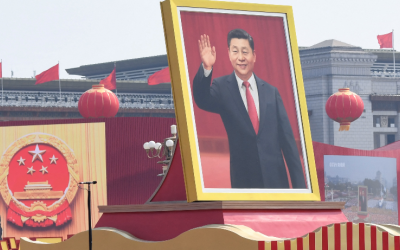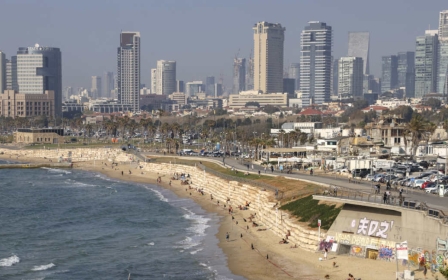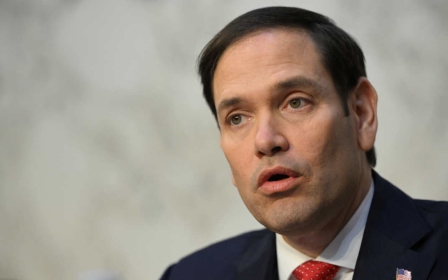'Israel's oldest friend in tech': Intel to invest $25bn in new plant

US semiconductor giant Intel will spend $25bn on a new chip manufacturing plant in Israel, officials said Sunday, with Prime Minister Benjamin Netanyahu calling it the country's single largest foreign investment.
The "agreement in principle" would see the semiconductor firm build the facility in the southern city of Kiryat Gat, which would open by 2027 and operate at least until 2035, Israel's finance ministry said.
"This is a great show of confidence in Israel's economy and shows the strength of the free economy we built here and the technological economy developing here," Netanyahu said.
The announcement is a big win for Netanyahu, whose government has faced criticism in Israel over claims he is putting its tech-driven economy at risk with a contentious judicial overhaul.
Netanyahu oversees a government that includes once fringe, far-right lawmakers whose control of ministries like defence and national security underscore the growing power of the religious right in the country.
New MEE newsletter: Jerusalem Dispatch
Sign up to get the latest insights and analysis on Israel-Palestine, alongside Turkey Unpacked and other MEE newsletters
Today the ultra-orthodox community is the fastest-growing group in Israel, due to higher birthrates. By 2065, they are expected to account for a third of the population.
But Netanyahu’s judicial overhaul has faced pushback among secular, left-leaning Israelis, particularly within the tech community. Middle East Eye reported previously how some were relocating to Greece as a result of the political spat regarding the judicial overhaul.
In a speech last month, Israel’s central bank governor said the economy suffered “a significant domestic shock” from the judicial fight.
As part of the deal, Intel’s taxes to Israel would rise from five to 7.5 percent, the finance ministry said in a statement.
Intel in return would receive a grant of 12.8 percent of its outlay, the ministry said, in line with Israel's capital investment encouragement law.
The two sides would begin finalising the deal in a process expected to take a number of weeks, according to the ministry.
Partnership since 1970s
Intel has been operating in Israel since the 1970s, with development centres and a production site that employs some 12,000 people out of the company's global workforce of 130,000, the finance ministry said.
The American tech giant has come under criticism from the Palestinian-led Boycott, Divestment, Sanctions (BDS) movement, which seeks to pressure Israel into ending the illegal occupation of Palestinian territories through economic protest.
Intel has been dubbed Israel’s “oldest and best friend in hi-tech”, and the BDS movement has had little success curtailing the partnership. In 2017, Intel, which is publicly listed on the Nasdaq stock exchange, even acquired Israel-based Mobileye, which makes technology for automated driving systems in vehicles.
But Intel’s deepening footprint in Israel could also add a new layer to concerns in Washington about Israel’s economic relationship with China.
MEE reported in October that US officials were seeking to clarify what impact a potential free trade pact between China and Israel would have on sensitive technologies.
Semiconductors have become a major fault line in Washington’s geopolitical rivalry with Beijing. Amid an economic decoupling between the world’s two largest economies, there are signs China has looked to Israel for technology.
"We are seeing more and more Israeli semiconductors going into Chinese EVs," Dennis Zhu, an exporter of Chinese vehicles to Israel, previously told MEE.
Under US pressure, in 2019 Israel set up a government body to screen sensitive foreign investments.
But Washington has been frustrated with the review panel's progress, a US official told MEE.
"The mechanism is weak. There is foot-dragging on the Israeli side. They are still moving too slow [to] act on our concerns about China," the official said.
Middle East Eye delivers independent and unrivalled coverage and analysis of the Middle East, North Africa and beyond. To learn more about republishing this content and the associated fees, please fill out this form. More about MEE can be found here.





